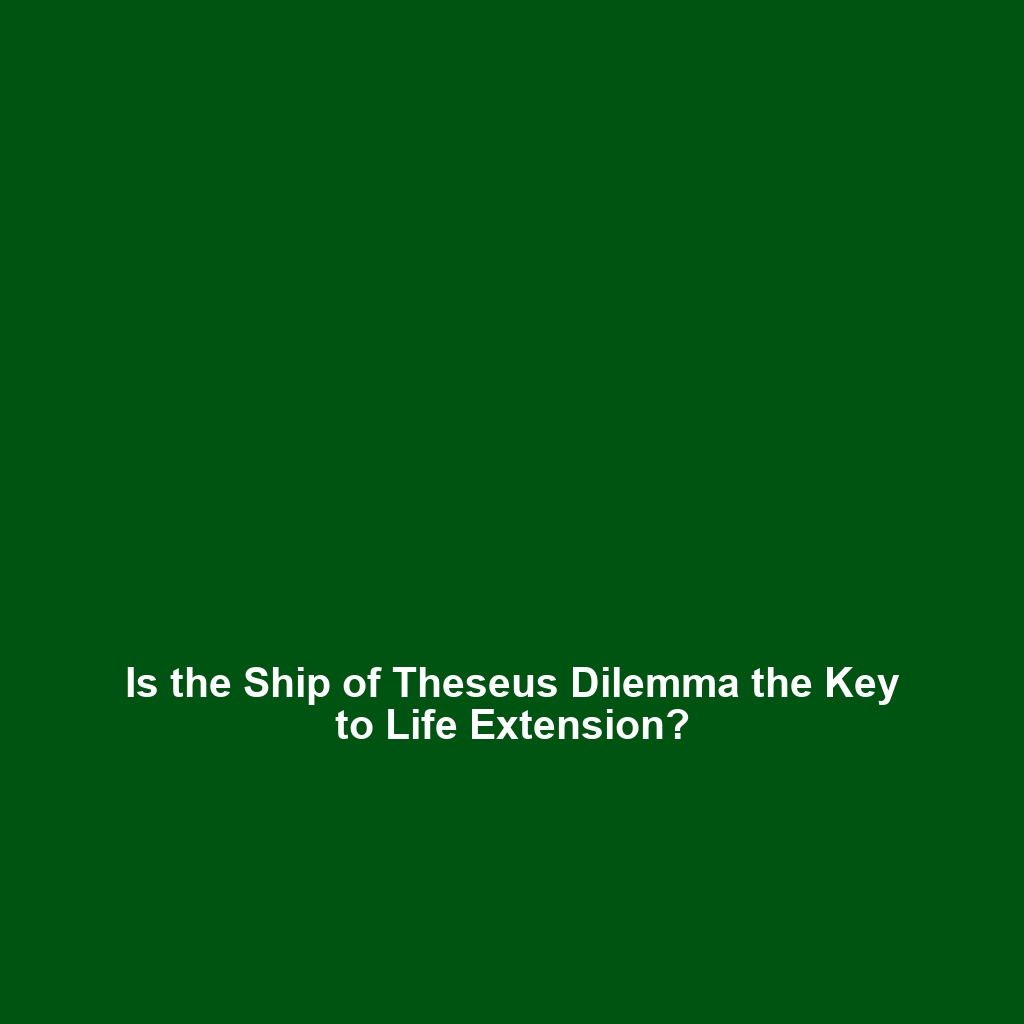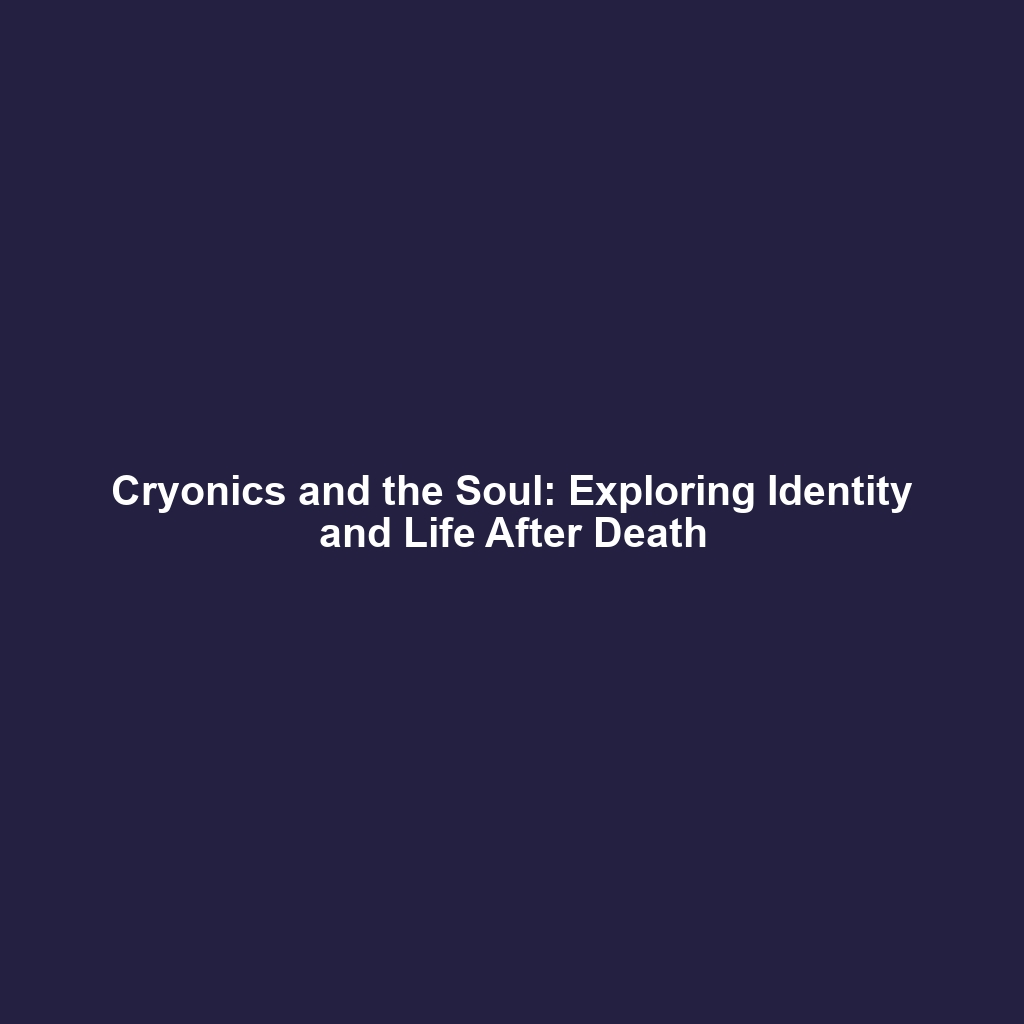The Ship of Theseus Dilemma in the Context of Cryonics & Life Extension
Introduction
The Ship of Theseus is a philosophical thought experiment that raises fundamental questions about identity and existence, especially in the context of Cryonics & Life Extension. If all the cells and molecules in a body are replaced or repaired over time, are we still the same person? This dilemma invites us to explore the nature of selfhood and continuity, vital considerations for those interested in life extension technology and cryonics practices. Understanding this philosophical concept deepens our engagement with the complexities of personal identity in the face of biological change.
Key Concepts
The Ship of Theseus dilemma revolves around the idea of identity and continuity. It poses profound questions which connect deeply with the realms of Cryonics & Life Extension. Here are key concepts associated with this dilemma:
- Identity Continuity: The question of whether a person’s identity remains intact as their biological components are replaced.
- Biological Repair: Advances in medicine allow for repairs to cells and tissues, posing questions on how these changes affect individual identity.
- Philosophical Persona: How the perception of self changes with continuous biological alteration.
Applications and Real-World Uses
The Ship of Theseus dilemma has significant implications for the practical applications within the field of Cryonics & Life Extension. Some notable applications include:
- Stem Cell Therapy: Used to regenerate damaged tissues while raising questions about altered identity.
- Organ Transplants: If a person receives multiple organ transplants, to what extent do they remain the same individual?
- Cryopreservation Techniques: Exploring the reconstruction of identity post-thaw in cryonics.
Current Challenges
While exploring The Ship of Theseus within Cryonics & Life Extension, several challenges arise:
- The philosophical implications complicate the understanding of personal identity.
- Lack of empirical data on how replacement processes affect consciousness and self-perception.
- Ethical considerations regarding consent and identity reclamation in cryopreservation cases.
Future Research and Innovations
Future research in the context of The Ship of Theseus dilemma promises exciting innovations that could reshape our understanding of identity in Cryonics & Life Extension. Anticipated advancements include:
- Advanced Genetic Editing: Technologies like CRISPR may allow for the replacement of damaged cells while preserving identity.
- Enhanced Neural Mapping: Understanding how memories may be preserved or altered through cellular changes.
- Artificial Intelligence Integration: Investigating how AI might affect human identity and continuity in life extension technologies.
Conclusion
The Ship of Theseus dilemma provides essential insights into the nature of identity as it intersects with Cryonics & Life Extension. As technologies evolve, understanding how identity is affected by cellular replacement or repair will become increasingly important. For those interested in delving deeper into this fascinating topic, we invite you to explore further resources on cryonics applications and the ethics of life extension.

